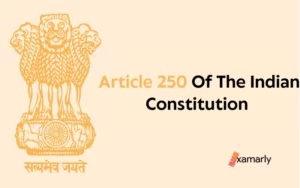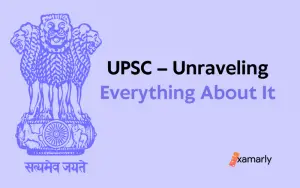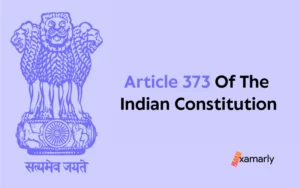The UPSC Interview stage is the last and most crucial stage of the UPSC Civil Services Exam. A lot of aspirants who have successfully cracked the civil services exam have prior job experience.
Well, having job experience is quite an advantage in general life as it helps in developing several skills, but in the UPSC journey, it does not hold any weight.
This article addresses the question of whether having job experience matters in UPSC interviews or not. It will help you gain clarity on “Does job experience matter in a UPSC interview?”.
Read it further to learn about the factors on which candidates are tested in UPSC personality tests.
Yet many candidates seek answers to “Does job experience matter in UPSC?” Let us delve into this query in more detail.
How does job experience matter in UPSC interviews?
With various category-specific age relaxations, the eligibility criteria of candidates for the UPSC CSE is a minimum of 21 years of age and under 32 years old. A large number of students graduate and begin working just before turning 21.
Being employed is fairly common until 32 years of age. Many young individuals who have had past employment want to prepare for the Civil Services Examination, popularly known as the UPSC exam.
In order to select potential candidates for A-Grade Officer jobs with the Indian Administrative Service (IAS), Indian Foreign Service (IFS), Indian Police Service (IPS), and other allied services, the Union Public Service Commission conducts this exam.
You can check the exam pattern and syllabus of UPSC CSE from the linked article.
Given that job experience has no weightage in UPSC, often candidates see their jobs as disadvantages and hindrances in preparation strategy. However, there are plenty of examples every year of candidates that demonstrate exemplary time management to crack the exam with their full-time job like AIR-35 Aparna Ramesh IAS.
In UPSC interviews, does work experience matter in any way?
The truth is that there is no extra weightage of work experience in the Civil services exam unlike demanded by various Institutes like IIMs. All candidates are treated equally as it is mentioned above, the minimum qualification for this exam is any Graduation degree from any recognized university.
There are a lot of experienced jobholders who sit in this toughest exam but they do not get any extra weightage in the selection of IAS, IPS, IFS, or any allied services of UPSC CSE.
It is also true that work experience attracts different questions for a candidate in the UPSC CSE Interview. This is because it is a one-on-one personality exam and the panel tests you for every experience you have had whether it is for a job or any other experience related to skills or life.
Work experience influences the mind of the Interview panel board as they are very interested in knowing about your job shift. A very common question asked is “Why do you actually want to go for UPSC CSE if you are working in a corporate job or any other Government services ?”
The panel wants to know your real motive for joining UPSC Civil services as you are going to be an administrator or a leader in prestigious Government service.
Numerous doctors, engineers, and MBA grads are among the millions of candidates who have worked for numerous famous corporate businesses with attractive incomes and who wish to join this prestigious service.
Therefore, it becomes a necessity for a candidate to defend his/her choice of joining civil services especially when you are not from an arts background or any non-professional degree background.
Questions asked during the UPSC interview are asked not only to gauge one’s interest but also due to the interest the interview panel has in knowing the candidate. It also helps the panel assess the situation-handling ability of the candidate through the interview answers.
In a job, candidates encounter instances where their situation handling, decision-making, and trade-off-making abilities get tested. This also aligns with the abilities of civil servants. Hence, these kinds of interview questions are quite common among all candidates.
You Might Also Like: How Many Hours of Study is Required for UPSC?
Factors for testing candidates in the UPSC CSE Interview
- The objective of the UPSC interview is to assess a candidate’s mind, test their understanding based on their capability to consider situations and balance their judgment. The board will also judge the candidate’s sense of integrity, morality, and concern regarding the marginalized sections of society. Moreover, the interview panel questions candidates and judges if the aspirant is a well-rounded person who is willing to work hard to make the country a better place.
- The panel will assess the candidate’s personality qualities during the interview for the UPSC civil service examination. For instance, the interview board will be looking for an applicant who can handle basic civil service traits. You must be ready to answer questions based on your past employment experience.
- It will be better to prepare your answers well and stay motivated before the UPSC civil service interview date. Practising is the best way to develop your confidence and identify your weakness. Practice with an experienced person so they can give you feedback and your experience increases.
- It’s important to remember that the UPSC interview aims to assess your personality, critical thinking, and communication skills. Having prior work experience is vital for the exam as the interviewer will assess you on these aspects.
- An applicant for the interview phase of UPSC should be ready for questions about any detail mentioned in the DAF form. As an example, in the case of a candidate’s name or any famous person with the same name, the meaning of the name, or the information regarding birthplace, etc, such type of information might be asked.
How does job experience matter in UPSC interviews?
The pointers stated below will help you to understand how job experience matters in UPSC Personality tests:
- The first and foremost advantage of having previous work experience in the UPSC interview is the fact that it helps you demonstrate your empathetic and balanced viewpoint with your learning experience.
- If you’ve held professional experience at some point, you know that no two days are ever alike. Every day, you were required to think quickly and adapt to new situations. These skills will help you thrive as an IAS officer because they’ll train you to tackle problems quickly and efficiently with a challenging experience.
- It’s also very important to be able to think on your feet. Mock interviews with someone who knows your resume are a good approach to practice. Being able to give interviews with confidence will help to show that you can handle pressure when it comes to real interviews.
- It demonstrates that you’re good at communicating with people from different backgrounds. It shows that you’re able to coordinate effectively with others as a team member.
- It also boosts their confidence levels by knowing that they can handle work-related challenges on their own and bring about a change if needed.
- Working professionals know how to deal with people as well as manage their time efficiently, both of which are important qualities for someone looking for a job in the government sector like UPSC or SSC.
- Candidates with prior experience are mature enough to understand what is expected from them at the workplace and how much time should be dedicated to each task or project.
Ace the Interview: Tips for UPSC Success
Now that you have learnt that having prior job experience for UPSC is not a mandate, however, it is an added advantage when it comes to cracking the UPSC exam. Here are a few tips listed below that will help you ace the interview.
- Prepare thoroughly for current affairs and issues.
- Practice your communication skills and maintain eye contact.
- Dress appropriately and maintain good body language.
- Be confident, but not overconfident.
- Be honest and sincere in your answers.
- Be knowledgeable about your academic background and work experience.
- Be well-versed in the vision and mission of the Indian Administrative Service (IAS).
- Be able to articulate your thoughts and ideas clearly and concisely.
- Be prepared to handle tough questions with grace and poise.
- Be yourself and showcase your unique personality and skills.
Related Read: UPSC Preparation Tips From Toppers: 10 Effective Tips
Conclusion
We hope you got the answer to the question “Does job experience matter in a UPSC interview?” after going through this blog.
It is true that the interview for UPSC is not a test of knowledge. It is a subjective assessment of an individual’s personality and decision-making ability.
Experience is the best teacher, and it unquestionably has a significant impact on how well you perform in a UPSC exam interview. Even if you lack experience, you may still be able to earn a respectable rank among lakhs of aspirants; however, having some experience may increase your chances.
Remember: There is always something positive to say about any work experience—even if it was just to learn how to interact with people better. This is also an essential lesson for interviews—and life!
FAQs
Can I get a job if I fail the UPSC interview?
Yes, you can still get a job even if you fail the UPSC interview, as it is only one component of the selection process.
Do interview marks matter in UPSC?
Yes, the marks obtained in the interview play a significant role the in the final selection for the Indian Administrative Service (IAS). Hence, interview preparation must be as strong as the compulsory papers and the papers of optional subjects.
Can UPSC be cracked in 1 year with a job?
It is possible to crack the UPSC exam in 1 year while having a job, but it requires a lot of dedication, hard work and a good understanding of all the topics given in the study material.
To increase your chances of selection, you can take the help of coaching institutes or mock tests.
Do UPSC interviews get rejected?
Yes, UPSC interviews can get rejected. The decision is based on the overall performance of the candidate in both the written papers and the interview.
Has anyone cleared UPSC while working?
Yes, many people have cleared the UPSC exam while working, but it requires a significant amount of dedication and time management skills for studies. Just like any other competitive examination, UPSC Civil Services examination preparation also requires ample time, a focused mind, a basic understanding of concepts, a good command of the exam syllabus and an intensive study plan.
Is it good to quit my job for UPSC?
It is a personal decision to quit a job for UPSC preparation. It depends on various factors such as financial stability, career goals, and personal circumstances.






